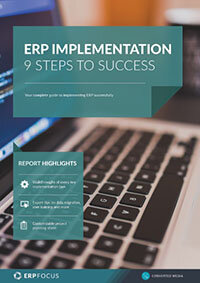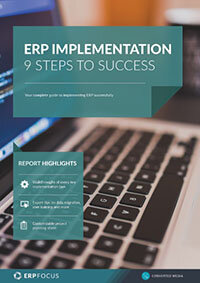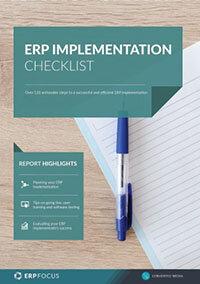3 crucial elements in any ERP project plan
Fail to prepare. Prepare to fail. In no business project is this axiom more appropriate than in ERP selection and implementation projects. We all understand the importance of a well documented ERP project plan, but what are the crucial elements that must be included in this document?
1. Needs assessment
There’s a significant difference between a ‘want’ and a ‘need’ when it comes to setting up an ERP project plan, but often, enterprise managers don’t get this point. When initiating a plan that is expected to serve as a set of practical milestones leading from a systems concept to an operational reality, the best way to get the most out of the needs assessment process is to operate on the basis of ‘less’ rather than ‘more.’
When developing an ERP project plan, financial concerns should serve as overarching limiting factors.
While this assertion may appear to be counter-intuitive at first, as a practical matter, getting to the heart of a solid set of ERP requirements is usually driven by elements of cost, whether they be upstream or downstream. When developing an ERP project plan, financial concerns should serve as overarching limiting factors. In this way elements of cost will guide the entire evolution from the outset, rather than allowing the cart to pull what many times ends up as being a very expensive, and inefficient horse.
2. Practical budgeting
In the same way that the process of ERP needs assessment should be governed by cost considerations, an overall sensitivity to general costs throughout a project plan’s life cycle can either make or break an ERP implementation. In this case, many folks forget a ‘fudge factor’, and instead allow themselves to be driven more by administrative desire, rather than solid operational thinking. There is always an intrinsic business friction at work between ‘those that spend the money’ and ‘those that cut the checks’. Costing on a best case scenario is a short term fix for this friction but will cause further issues down the line.
Recommended Reading: ERP Implementation Guide - The companion to your ERP project plan
Consequently, as an enterprise manager penciling out an ERP project budget, ensure costs are as deep as possible from the outset. Now ratchet the cost up by a factor of a minimum of 35%, just to be sure that all the gotchas have been considered in addition to what I refer to as the ‘negotiation delta’. This term refers to the likelihood any CFO will try to drive the final budget cost down to what he/she deems to be ‘a more reasonable’ value.
3. Right system, right time
This critical planning failure can drive any ERP project plan right off the rails, unless the enterprise manager is clear-eyed and willing to accept ‘yes for an answer.’ In this event, enterprise technical growth is always impacted by emotional buffeting derived by the proffer of ‘newer, faster, bigger’ systems variants. This intrinsic need is typically leveraged by clever, smooth-talking sales reps, who won’t have much skin in the final result of an ERP implementation round, once all is said and done.
This means that an enterprise manager, must; I repeat, must; be mindful of the specific needs of the enterprise, clearly supported by a consequent and linear ERP project plan made up of business sense, not hyperbole. At the end of the day, a good sales person will only take you so far. After the excitement of the purchase subsides, the manager and his/her operational team will be left with what’s on the ground. As a result, better to buy the right tool, at the right time, based on the right requirement, otherwise one’s effort is likely to devolve into another negative ERP implementation experience.
Free white paper

ERP Implementation: 9 steps to success
The 9 proven steps you should follow when implementing ERP

Featured white papers
Related articles
-

ERP implementation plan (ERP implementation process guide)
Everything you need to know about running a successful ERP implementation - and we mean everything
-

How the right ERP can help you launch a successful omnichannel business
Petersen Zhu, CEO of DigitBridge and Vibes Base, shares how to create a scalable omnichannel stra...
-

ERP implementation plan template (and schedule)
A template ERP implementation schedule that you can customize to suit your own needs


